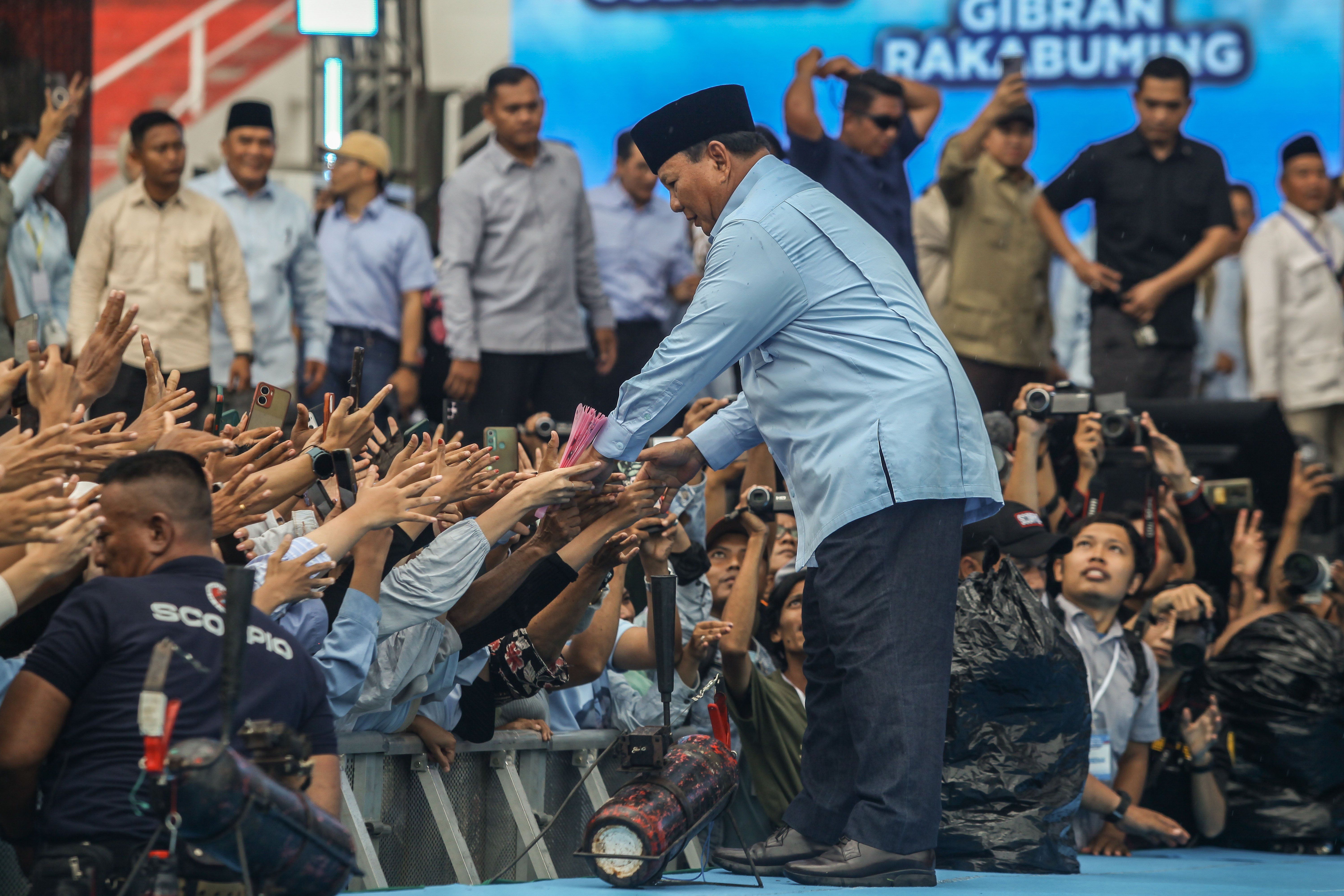The candidates: The immensely popular Jokowi is term-limited, but his son Gibran Rakabuming Raka, is running for vice president alongside current defense minister Prabowo Subianto.
They are running about 20 percentage points ahead of their main rivals with about 46.7% of voters supporting them pre-election. Ganjar Pranowo, governor of densely populated Central Java, is in second place with about 24% of the vote, and independent candidate Anies Baswedan is close behind at 21%.
Where things stand: There isn’t much daylight between the candidates on policy, as each attempts to outdo the others in their promises to continue Jokowi’s successful economic policies, continue balancing friendly relations with both Beijing and Washington and support Palestinians amid the conflict in Gaza.
Should no candidate attain an outright majority of the votes next month, a second round will be held in June.
